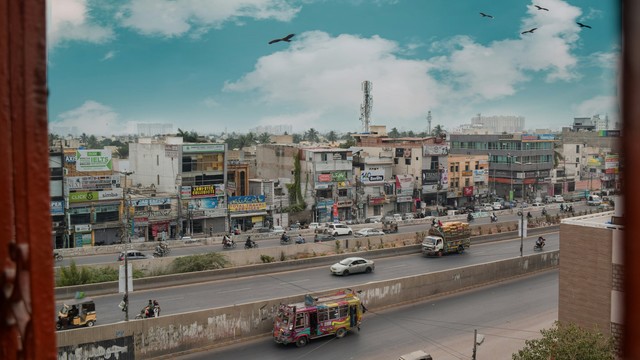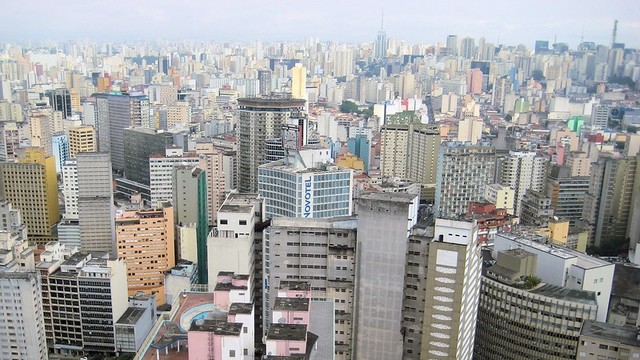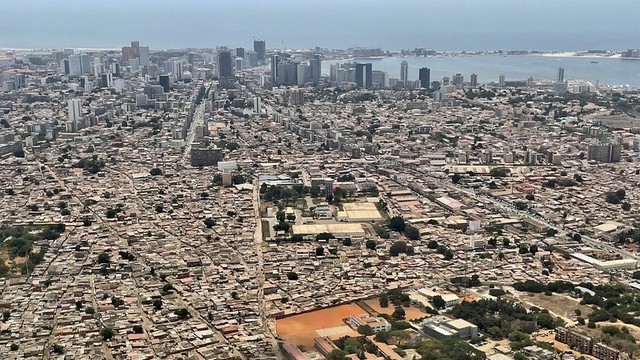Data to drive informal settlement upgrading. Who generates it – and who owns it?
Guest blogger Sheela Patel joins David Satterthwaite to reflect on the data needed to drive, inform and crucially support informal settlement upgrading. And how and by whom is it generated and used?



Dharavi slum in Mumbai, India (Photo: Mark Hillary via Flickr, CC BY 2.0)
Many state and city governments still bulldoze informal settlements, evicting residents with zero compensation or relocation support. In the previous blog, Arif Hasan described the scale of evictions, with the support of the judiciary, in Karachi. And as we write, widespread destruction of long-established communities is under way in Port Harcourt, Nigeria.
But informal settlement upgrading has long been recognised as the most effective way to improve housing conditions and basic services for low-income groups. The lack of local data presents a major stumbling block, however.
Who needs what local data?
For instance, to extend piped water supplies, data is needed for each household on each plot along with accurate, detailed maps. But different actors and institutions have different information needs for their respective roles. So the issue is, what data, for what purpose, and for whom? Who generates this data? And who owns it?
Local politicians, water agency and municipal authority staff, national (and often state) government and international agencies – as well as NGOs working on urban water issues – want data on the quality and extent of water provision. And most critically, involving the residents and their organisations is key to a successful outcome.
Meanwhile the local politician seeking support for piped water wants data for their ward/neighbourhood and does not want data on how well her or his country is doing regarding the UN’s water and sanitation Sustainable Development Goal (SDG6). Equally, international agencies do not want data on who is being disconnected from municipal provision in ‘ward x’ in ‘city y’.
Local data matters
In most cities, local governments and other local actors are much more important than national governments and international agencies in extending infrastructure and services to informal settlements. Not only because of what they do, but also what they support, what they permit and what they ignore or oppose. So it’s here that local data is much needed.
Previous blogs have highlighted the lack of local data, as well as the innovative ways now being used to generate it. For example, in Karachi, enumeration and mapping by the Orangi Pilot Project Research and Training Institute showed local governments how to install or improve water, sanitation and drains in their jurisdiction. And informal settlement surveys at community and city level are central to the work of the Asian Coalition for Housing Rights.
Doing it for themselves
It may come as a surprise to many to learn that it is informal settlements residents and their organisations and federations who are by far the largest and most effective providers of detailed, relevant data.
Previous blogs in this urban transitions series have described how such organisations have developed their own surveys, maps and enumerations to inform their work, including informal settlement upgrading and nurturing productive partnerships with local government.
The process, which nowadays includes digital recording, includes numbering each house to produce the physical address needed for accessing public services and emergency relief.
Slum Dwellers International’s (SDI’s) ‘Know Your City’ campaign prompted surveys in thousands of informal settlements across 32 nations and 478 cities. These are important, not only for the data they provide, but because of who generates and owns the data, and crucially how it is used – balancing the needs of the community with official planning requirements.
But whose data is it?
Many researchers have asked SDI or its member federations for access to their data – but what are the benefits for those who generated it?
External researchers would like all enumerations to contain the same questions so comparisons can be drawn. But the aim for the federations is often to address a particular local need – such as slum upgrading, land tenure, access to state entitlements (including pandemic-related benefits), or avoiding eviction.
It could also be to provide data to support relocation if upgrading in situ is not possible, and to support decisions on setting priorities, how to get internal consensus of what to do, and local government ‘asks’.
This sort of data gathering and use is not unusual. What is unusual is that it’s designed and undertaken by local communities, yet has the potential to be aggregated wider to support negotiation at city, national and even international level.
Slum dwellers count – lessons from a renowned leader
Jockin Arputham, founder of the National Slum Dwellers Federation (NSDF) in India and co-founder of SDI, was very clear about how the different actors engaged in urban development had different data needs and that slum/shack dweller organisations and federations had to be fully involved.
He recognised the power of local data when he led the fight to prevent the eviction of his settlement (Janata colony, Mumbai) in the early 1970s by conducting a survey to show the economic contribution of its inhabitants to the city.
Sadly this did not stop the eviction, but it delayed it by many years and resulted in a better deal for those resettled. The household census done by residents and community ensured each family got a plot. And residents began to see the value of documenting their reality. Data on each household and each building is needed to support upgrading and to ensure no one gets left out of resettlement.
The effectiveness of this approach is also illustrated by the census of pavement dwellers – ‘We, the invisible’ – supported by the Society for the Promotion of Area Resource Centres (SPARC) in 1985. Data about pavement dwellers led to advocacy for their rights and entitlements.
And from this came the alliance formed by NSDF, SPARC and Mahila Milan (the federation of women’s savings groups), where the gathering of data became commonplace in India, and in other nations’ slum/shack dweller federations.
Jockin’s rules
Jockin’s mantra to communities was “when in doubt count!”. Once agreement for upgrading is confirmed by government, initiate survey work – effectively slum censuses to record such things as water and sanitation provision, and waste collection – house by house (room by room for the many households who live in one room).
- Rule 1: Be organised. Positive local government responses are much more likely if requests are from representative organisations rather than individuals
- Rule 2: Be better informed than the government officials you are negotiating with – and take data and maps to meetings. This is usually data that local governments don’t have and would have difficulty generating. This also demonstrates resources and skills that you can contribute
- Rule 3: Make reasonable demands and negotiate for what is possible – but also ensure that your residents' association is instrumental in both creating, and executing, the solution, and
- Rule 4: Recognise the different data needs of different government agencies and politicians. Local government departments have priorities that may clash with informal settlement upgrading. But a win-win solution can often be found to avoid their conventional approach of removing slum dwellers to advance the city’s development.
Over time these principles have become institutional practice among local and national social movements. Peer exchanges and learning from each other have expanded the possible areas of data collection and its use.
The data is not transformative in itself. It is how it is collected and by whom and how it is used that certainly is.



